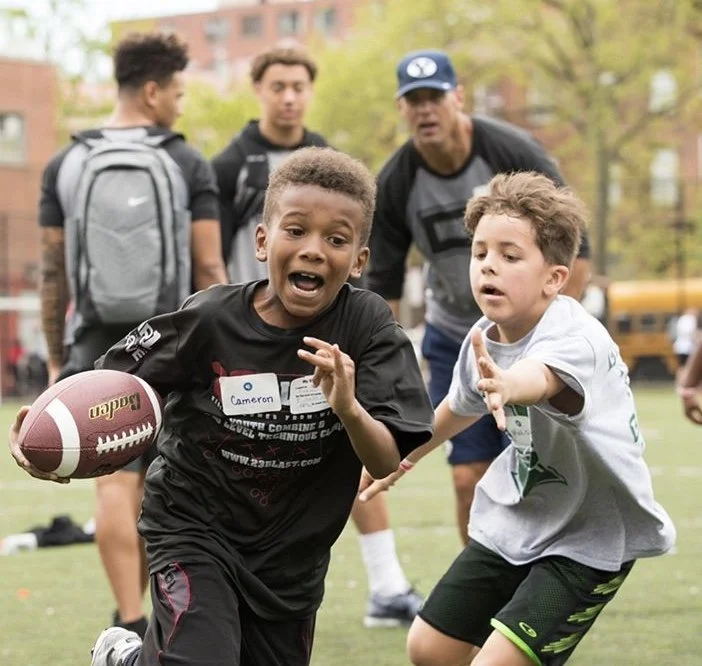
Our Community
Community is our most important external asset. Although there is considerable support for sports; the belief that the quality of the relationships between caring adult mentors and youth participants is more important than the sport-specific content of a particular youth development program:
Planned and structured community service activities, particularly those that enable Harlem Jets athletes to assume leadership roles with other youth in Harlem, foster a sense of pride and enable Harlem Youth to become external assets for others.
Our Youth
49% Hispanic Latino
20% African Family Origin
46% Black African American
2% White or other
What problem are the Harlem Jets solving?
The socio-economic problems of poverty and inequality are monuments in Harlem and have negative consequences for our youth, who are brimming with potential but too often lack equitable access to opportunities. Positive mentors and role models can make a meaningful difference in combating these challenges, and this is where Harlem Jets comes in. Using sports as the entry point, Harlem Jets provides trauma-informed mentoring, social-emotional learning, and mental health support to the youth who participate in our programs.
We utilize proven and effective strategies to reduce undesirable behavior and trauma in our communities. Through our programs, we support parents and families both financially and emotionally, enhancing the community of Harlem ability to place value on self-efficacy, education, and the family structure. As we provide opportunities for our youth to develop a positive self-image and learn teamwork, resilience, perseverance and self-awareness, we can affect a cycle of positive change in our communities. When we give back, we all go further.
The poor quality of public schools in many communities of color is arguably the most consequential challenge, but communities like Harlem lack many other public and private services like quality health centers, food markets, parks and recreational facilities, and transit, with detrimental consequences for our youth’s near-term well-being and long-term life chances.
High levels of crime and violence also have dire consequences for youth of color, especially those with high rates of poverty. The toxic stress of exposure to violence undermines physical and mental health and can disrupt children’s healthy development and ability to learn. Violence and crime can make school and work commutes dangerous, create unsafe school environments, and disrupt learning in the classroom, and they make it more difficult for youth to find safe spaces to exercise and play outdoors.
The COVID-19 pandemic and its economic fallout have made the costs of segregation painfully apparent. Black and Brown people are getting sick and dying, losing employment income, and suffering from food and housing insecurity at higher rates than white people. And growing evidence demonstrates that the health and economic consequences of the pandemic are affecting neighborhoods differently based on their racial composition. Across the United States, disparities in the effects of COVID-19 are driven by long-standing structural barriers and inequitable neighborhood conditions.
82% of Harlem Jets Participants come from families who would qualify as low-income
Numbers at a Glance
The Harlem Jets serves more than 600 public school kids who qualify for free or reduced-priced lunch per year.
We provide a total of 40 community coaches work within the framework of families, schools and partners to address widespread academic and mentorship gap for low-income children.
Through pre- and post-tests, 94% of participants showed significant increases in positive attitude toward the future, identification of neighborhood resources, interested and caring adults, sense of acceptance and belonging, value on achievement, and ability to work out conflicts with teammates
74% of Harlem Jets parents attend and/or volunteer at least five events.
Each Participant receives an average 200 hours of programming per year.



